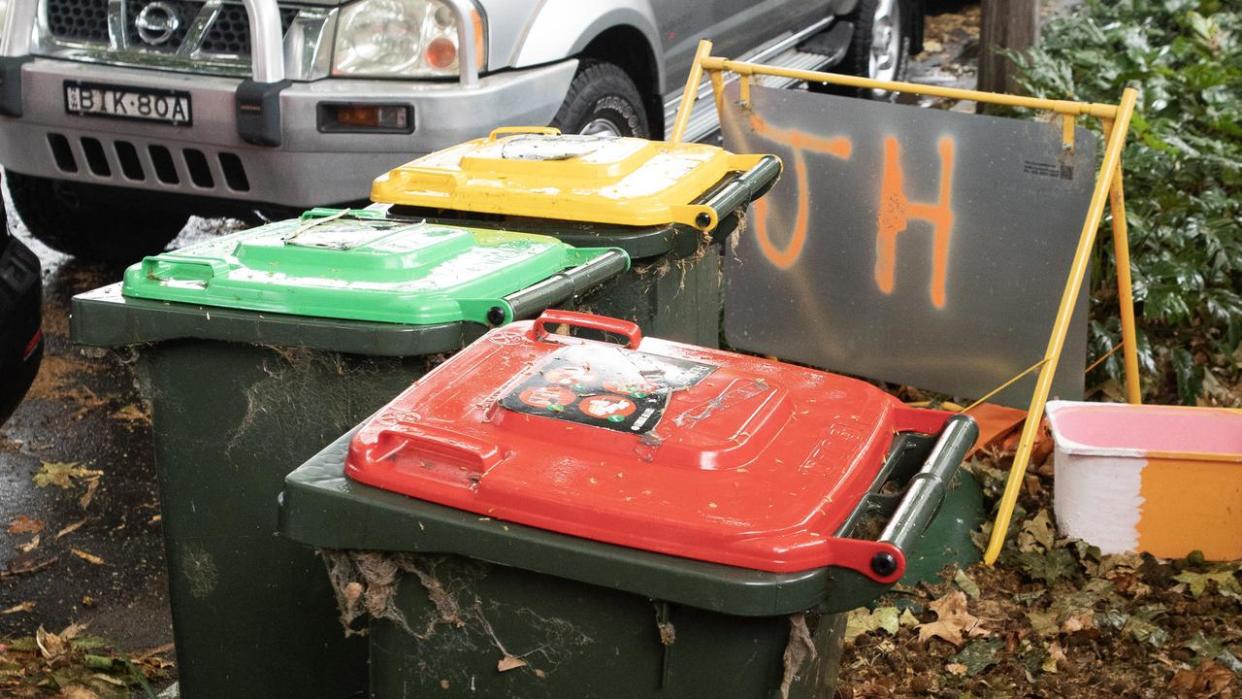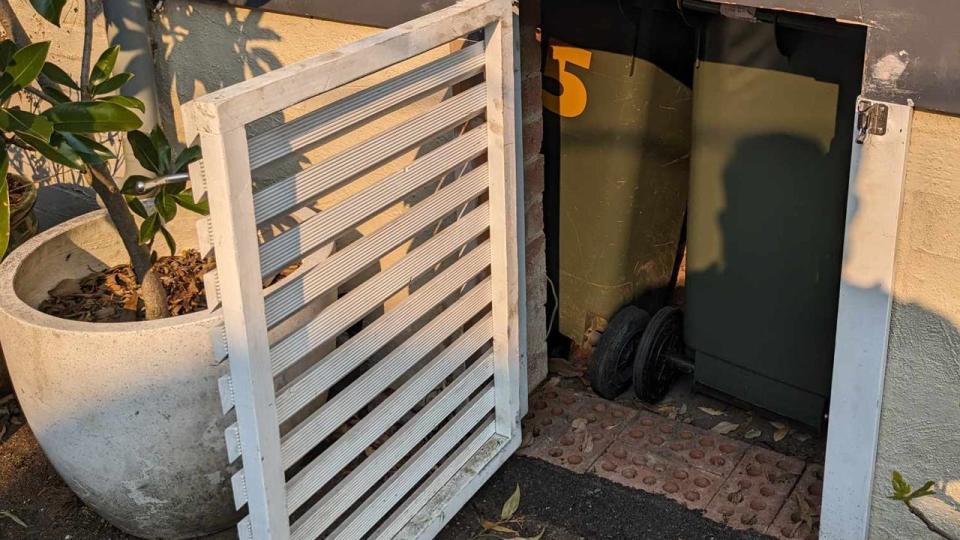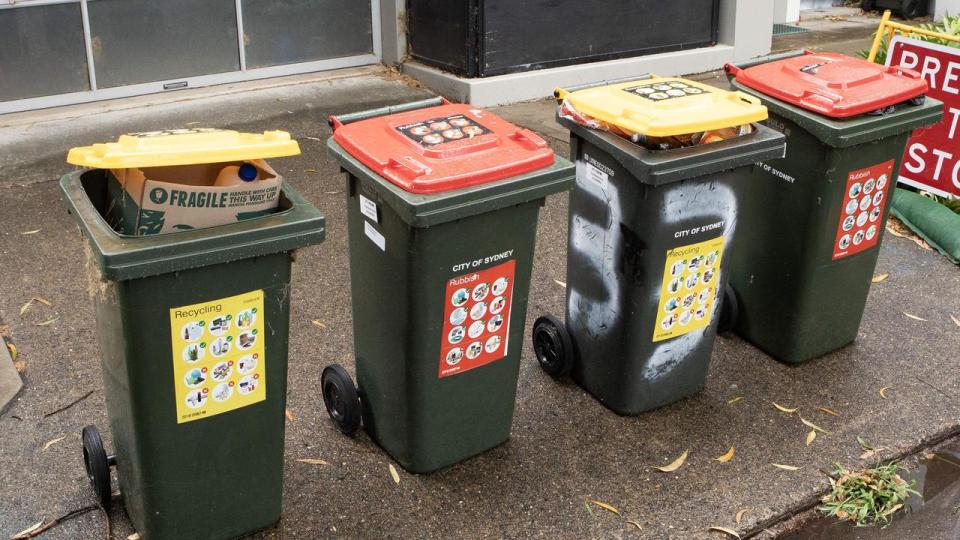‘Out of touch’: Anger grows over new bin rule

Anger is mounting over a Sydney council’s decision to collect red lid bins once every two weeks, with one councillor admitting they hadn’t consulted locals in the affluent suburb properly.
Garbage bins in the Inner West Council are now being collected fortnightly - and not weekly - as part of changes to the council’s waste strategy.
In just a few weeks, many households across suburbs like Balmain, Tempe, Annadale and Leichhardt will need to place their food scraps into green food organic and garden organic (FOGO) bins, which will emptied weekly.
Sanitary products, nappies and pet litter will remain red bin items, which will be collected fortnightly.
Families have raised concerns about the smell, rodents and potential overflowing bins as we head into a summer of sweltering temperatures.
Birchgrove resident David Lannan said his 150-year-old worker’s cottage already struggles to fit their current red and yellow bin, which is placed in a compartment underneath their veranda.

While Mr Lannan has yet to receive the green bin, he says it’ll have to be kept on the street.
“We don’t have any space for a new bin, so we can’t really do anything with it,” he said.
“We understand the reasoning behind the bins. We want to reduce our waste, but there’s a limit to what our building can do. These houses aren’t in Dulwich Hill or Ashfield.”


He criticised the council for having a “one-size-fits all approach,” he says will inevitably destroy the aesthetic of the harbour-view suburb.
“We’re still going to have to put everything in the existing red bin and it’s just going to be picked up every two weeks,” he continued.
“It’s just going to be smelly and yucky, and not going to give the outcome that they’re looking for.”

In the neighbour suburb of Balmain, Dan Shaw said he was only made aware of the new schedule after an irate post in a community Facebook group sparked more than 150 comments.
In the thread, households lashed the decision as being “out of touch,” and “disastrous”.
“While we need to support the environment and reduce waste, changes need to be carefully planned and implemented, the Inner West Council seems to largely just make their own decisions and ignore community feedback,” said Mr Shaw.
Smell was also an issue. While his household is able to keep their bins away from their home, he felt bad for his neighbours who couldn’t.
“We don’t have babies so no nappies in our bins, but there are plenty of young families around and I feel sorry for them,” he said.
“With a very hot summer predicted you’d think winter would be a more suitable time to trial this.”
Inner West councillor for the Balmain ward, John Stamomlis conceded the council could have engaged more with residents, before bringing forward the program from March 2024.
“The engagement on the issue was cut short and the feedback from residents didn’t occur to the extent that it ideally should have,” he said.
“Now I think it’s incumbent upon the council to put in place those systems that will do that once it’s introduced.”

An Inner West Council spokesman said while food recycling may be “challenging at first”, the environmental impact will be “significant”.
He said the program would save ratepayers more than $370,000 per year in landfill needs, with the averaging household able to offset the equivalent one month of their annual electricity emissions by participating into the program.
“Diverting food and garden waste from landfill is the single biggest thing we can do as a community to help combat climate change,” he said.
“After the initial rollout in October, we will review the data and we have the resources to make modifications and changes if necessary.”
The council will also have a dedicated team to help residents struggling to transition to the new schedule.
For residents concerned about odour issues, he said trials in other councils have recommended “securely wrapping nappies, incontinence pads, period products, pet litter and pet waste before disposal in the red bin”.
“(It) limits odour and that there is no increase in odour from one week to two weeks,” he said.
Similar collection schedules are also in place at Randwick City Council and Penrith City Council, with FOGO services already used, or slated to start in 56 councils.


